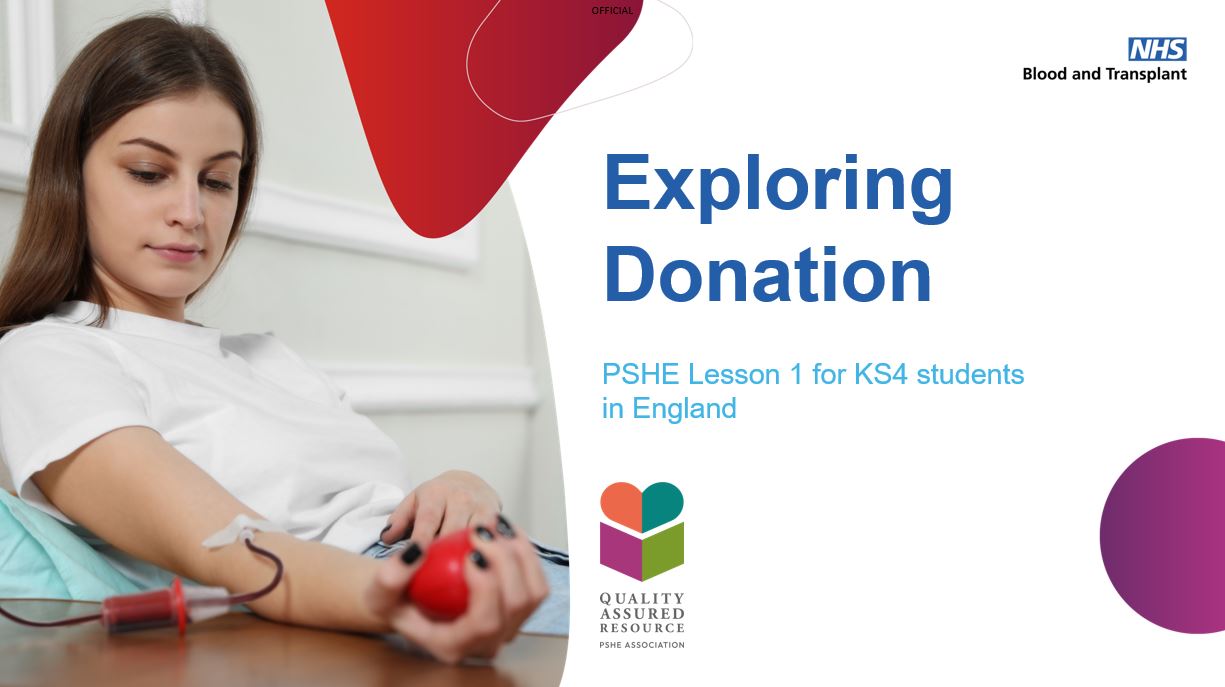Exploring donation: KS4 PSHE lesson plan 1
Before you continue...
This lesson covers a sensitive topic. It is essential that you read our guide to creating a safe learning environment document before delivering this session.
Discover the process and importance of blood, organ and stem cell donation


Ages: KS4 students (ages 14-16) in England
Subjects: PSHE / RSHE
Aim: Developed in collaboration with Anthony Nolan and with the support of practising teachers, this lesson explores what it means to donate blood, organs and stem cells and why donations are needed, encouraging students to reflect on their own attitudes towards donation. The accompanying film is featured below.
Curriculum links
This resource is linked to the national curriculum in England.
PSHE Association Programme of Study - KS4
Relationship values
R9 - To recognise, clarify and if necessary challenge their own values and understand how their values influence their decisions, goals and behaviours.
Health-related decisions
H14 - About the health services available to people; strategies to become
a confident user of the NHS and other health services.
H15 - The purpose of blood, organ and stem cell donation for individuals
and society.
Relationships and Sex Education and Health Education (RSHE)
By the end of secondary school, pupils should "know about the science
relating to blood, organ and stem cell donation".
Citizenship
KS3
The roles played by public institutions and voluntary groups in society, and
the ways in which citizens work together to improve their communities,
including opportunities to participate in school-based activities.
KS4
The different ways in which a citizen can contribute to the improvement of
his or her community, to include the opportunity to participate actively in
community volunteering, as well as other forms of responsible activity.
